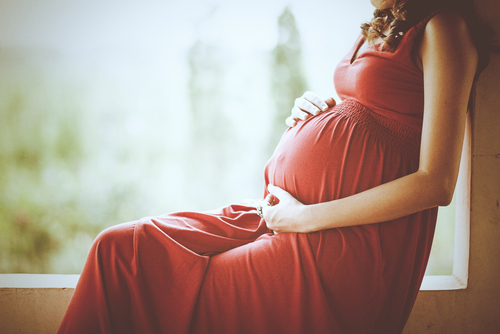-
Tips for becoming a good boxer - November 6, 2020
-
7 expert tips for making your hens night a memorable one - November 6, 2020
-
5 reasons to host your Christmas party on a cruise boat - November 6, 2020
-
What to do when you’re charged with a crime - November 6, 2020
-
Should you get one or multiple dogs? Here’s all you need to know - November 3, 2020
-
A Guide: How to Build Your Very Own Magic Mirror - February 14, 2019
-
Our Top Inspirational Baseball Stars - November 24, 2018
-
Five Tech Tools That Will Help You Turn Your Blog into a Business - November 24, 2018
-
How to Indulge on Vacation without Expanding Your Waist - November 9, 2018
-
5 Strategies for Businesses to Appeal to Today’s Increasingly Mobile-Crazed Customers - November 9, 2018
SSRI use in pregnancy raises autism risk
Taking antidepressants during pregnancy increases the chance that the baby will have autism by 87 percent, a new study shows.
Advertisement
Women who take antidepressants during pregnancy have almost double the risk of having an autistic child, experts warn.
“The overwhelming number of women who use SSRIs during pregnancy don’t have a child with autism”, said Susan Hyman, chief of neurodevelopmental and behavioral pediatrics at Golisano Children’s Hospital at the University of Rochester in NY, who wasn’t involved in the new study. So pregnant women who are concerned about taking antidepressants should consult with their doctor before taking any action, he says. Pregnant women with uncontrolled depression may not eat well or keep up with prenatal visits, and, in the most severe cases they may be at increased risk for suicide.
“They could go through withdrawal symptoms that could be a higher risk than continuing on their medicine”.
“The majority of pregnant women who are depressed are mildly to moderately depressed and for sure, antidepressants are a treatment option but they are not the only one”, she said.
The University of Montreal study found that taking certain antidepressants appears to double the risk that a child will be diagnosed with autism by age seven.
Among those infants exposed to antidepressants in the first trimester, 1 percent were diagnosed with autism. At the same time, the growing use of antidepressants may help explain why the rate of autism diagnoses has increased from 4 in 10,000 children in 1966 to 100 in 10,000 today. Children with the disorder usually display social challenges and communication difficulties.
The findings, published in the journal JAMA Pediatrics, could have profound ramifications as between six and ten percent of pregnant women are being treated with antidepressants.
Berard’s team studied more than 145,000 children born in Quebec between 1998 and 2009.
“The baseline risk in the general population for autism spectrum disorders in children is around one percent”.
The researchers identified 4,724 infants who were exposed to antidepressants in utero; 4,200 infants were exposed during the first trimester and 2,532 infants were exposed during the second and third trimester, a period critical to a fetus’s brain development. Earlier antidepressant use did not appear to have an effect.
Antidepressants are frequently given to women during pregnancy to treat depression.
Still, the overall risk of any one child developing autism remains very small. “We know that all neurotransmitters play a role in not only sending signals but how the brain reacts to those signals and how the brain develops”, Pressman said.
That theory makes sense in light of what’s known about serotonin, said Dr. Paul Wang, head of medical research for Autism Speaks.
ASD was diagnosed in 1.2% of those exposed to antidepressants during the second and/or third trimester and 1% of those exposed during the first trimester.
Prof Seena Fazel, Professor of Forensic Psychiatry, University of Oxford, said the study had limitations, as it did not fully account for differences in the backgrounds of the different groups of women in the study. While the study offers no definitive answers, the effect persisted when researchers sought to adjust for the possibility that depression itself raised the risk.
Advertisement
And in the ongoing search for environmental contributions to the risk of ASD, gestational exposures are increasing as an area of focus, said King, who was not involved in the research. “It is unlikely that there will be a straight line from such exposures that leads unwaveringly to [autism spectrum disorders]”. The databank recorded several categories of information, including the mother’s age at birth, her history of depression and use of antidepressants, the child’s family history of autism, the family’s socio-economic status, and other factors.





























